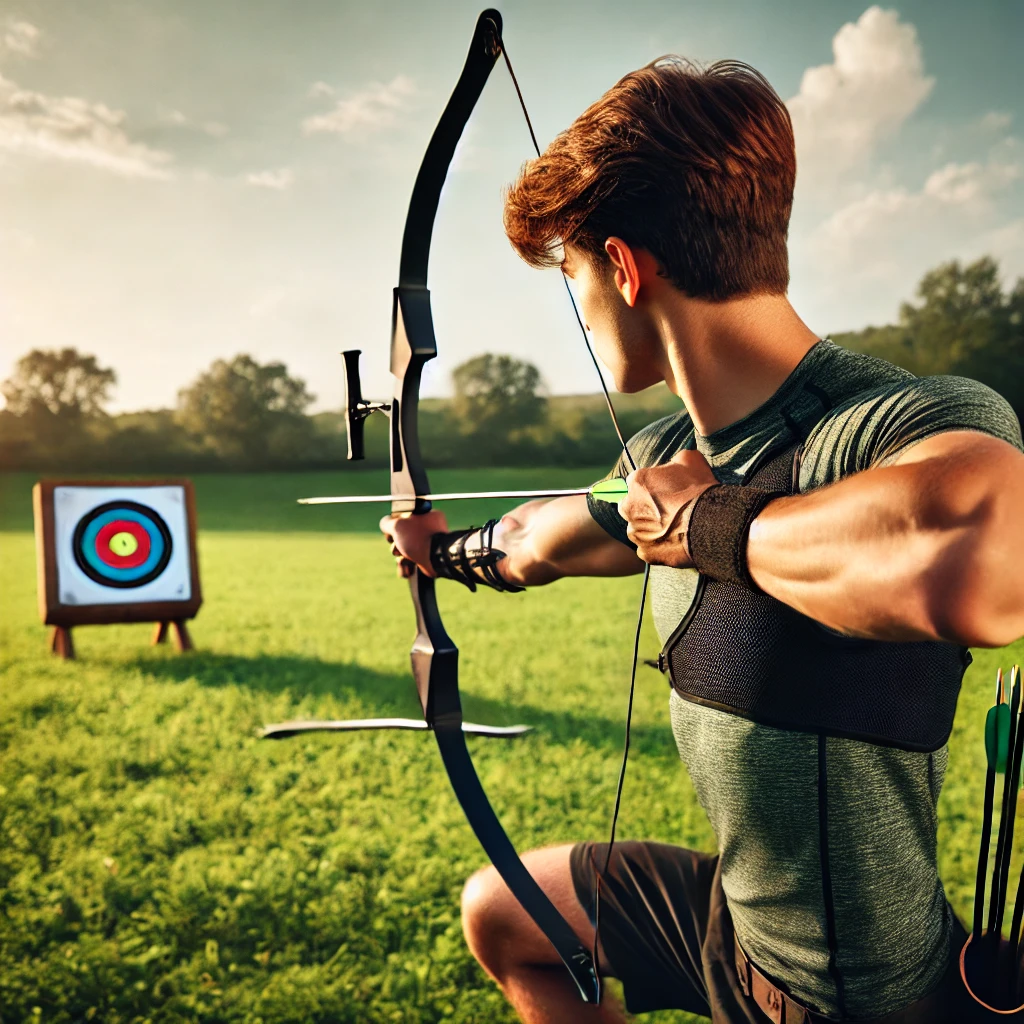Introduction
Archery is a sport that requires precision, control, and patience. Whether you’re a beginner or aiming to become a professional, a well-structured training plan is essential. Here’s a comprehensive guide on how to train effectively to become an archery pro.
1. Equipment Preparation
- Bow Selection: Choose a bow that matches your strength and skill level. Recurve bows are commonly used for beginners.
- Proper Gear: Invest in quality arrows, a quiver, a bracer, and a finger tab for protection and improved accuracy.
2. Physical Conditioning
- Strength Training: Focus on upper body workouts like push-ups, pull-ups, and weightlifting to build muscle strength required for drawing the bow.
- Endurance Training: Include cardiovascular exercises like running, cycling, or swimming to enhance stamina.
- Flexibility: Regular stretching and yoga can improve flexibility, essential for achieving proper form and posture.
3. Technique Development
- Stance: Adopt a balanced stance with feet shoulder-width apart. Practice this stance regularly to ensure stability.
- Nocking the Arrow: Learn to nock the arrow consistently at the same point on the string.
- Drawing the Bow: Use your back muscles rather than your arms. This reduces fatigue and improves accuracy.
- Aiming: Focus on a small point on the target rather than the whole target. Consistent aiming practice is crucial.
- Release: Practice a smooth release by relaxing your fingers and allowing the string to roll off.
4. Mental Training
- Focus and Concentration: Meditation and mindfulness exercises can improve your concentration during practice and competition.
- Visualization: Visualize successful shots and practice mental imagery to enhance performance.
- Stress Management: Learn techniques to manage competition pressure, such as deep breathing and positive self-talk.
5. Practice Routine
- Consistency: Practice regularly, ideally several times a week, to build muscle memory.
- Variety: Mix different types of practice sessions, such as target practice, distance shooting, and simulated competition.
- Feedback: Record your sessions and review the footage to identify areas for improvement. Seek feedback from a coach if possible.
6. Competitions
- Local Tournaments: Participate in local archery tournaments to gain experience and test your skills under pressure.
- National Competitions: As you progress, aim to compete in national-level tournaments to challenge yourself against stronger opponents.
7. Continuous Learning
- Archery Classes: Join archery clubs or classes to learn from experienced archers.
- Online Resources: Utilize online tutorials, forums, and videos to enhance your knowledge and skills.
Conclusion
Becoming proficient in archery requires dedication, practice, and a structured training regimen. By following these guidelines and continuously refining your techniques, you can develop into a skilled archer ready for competition.

